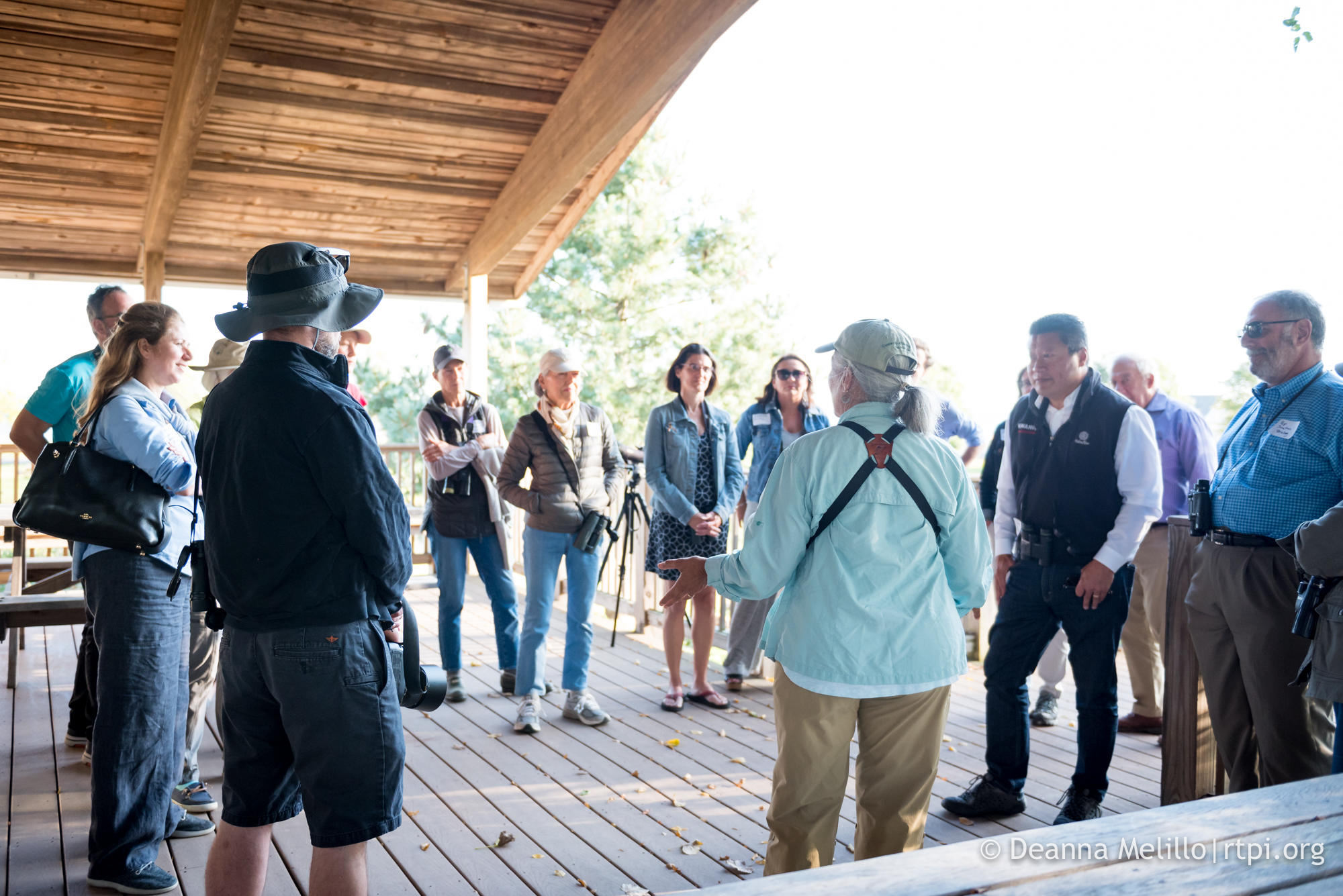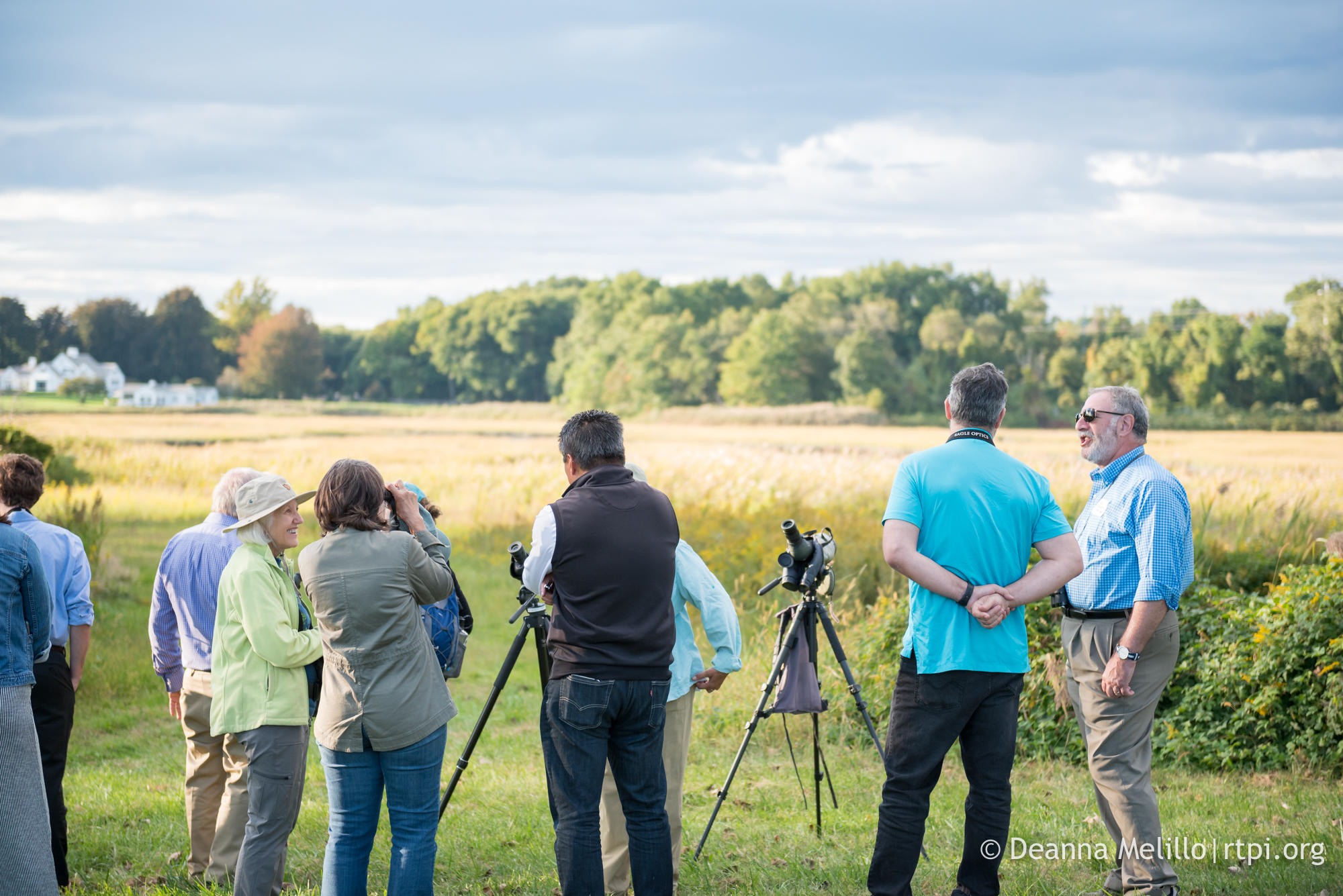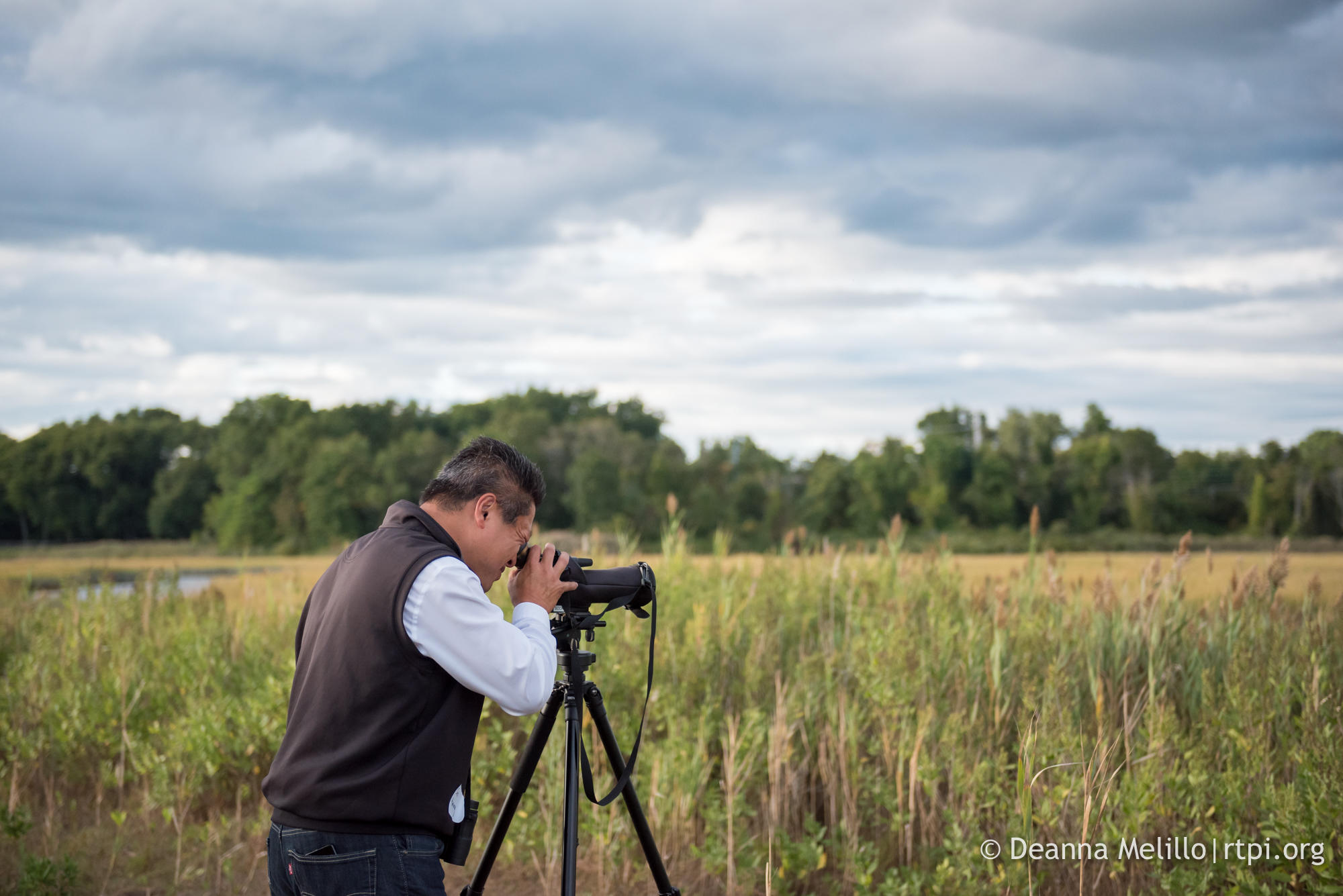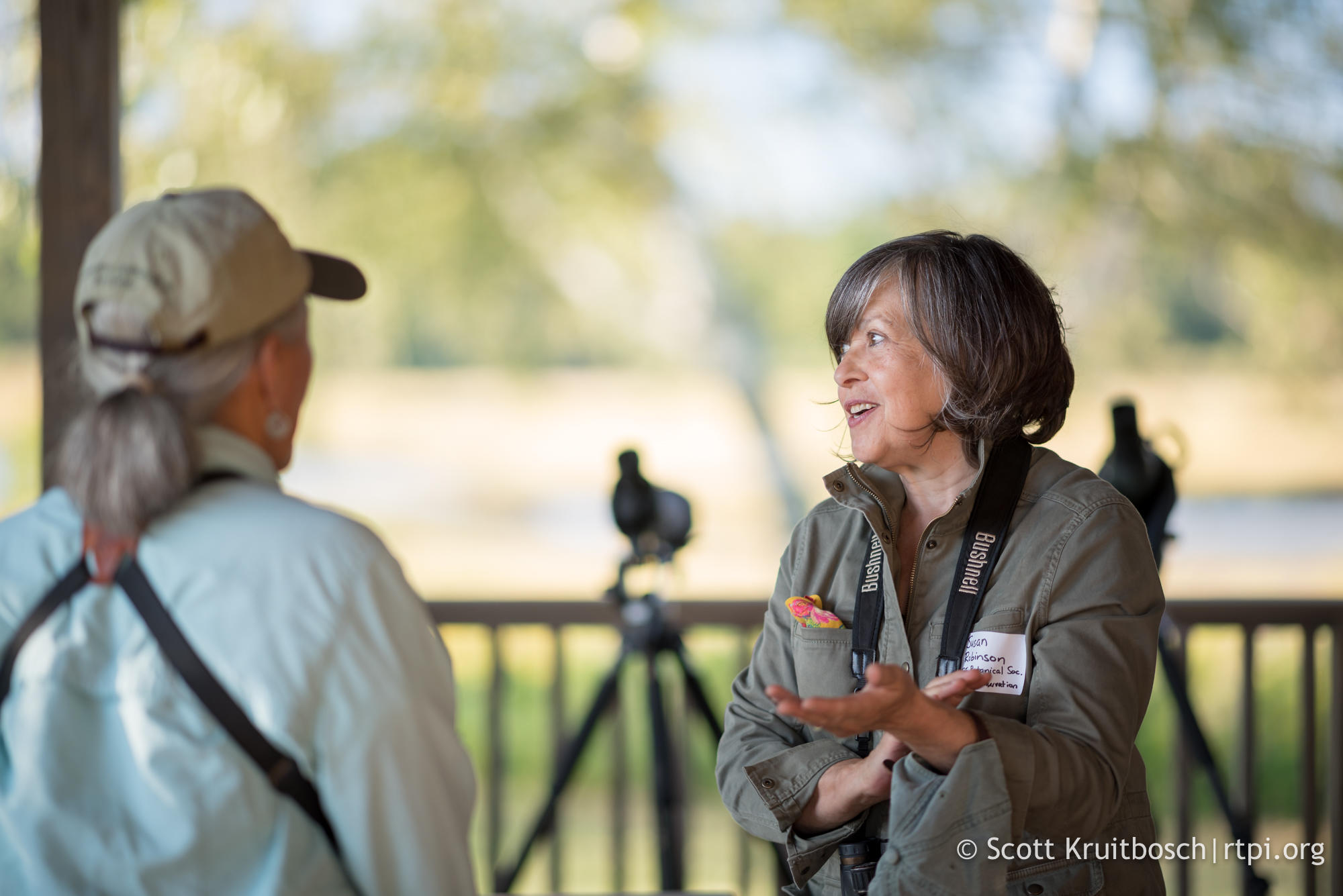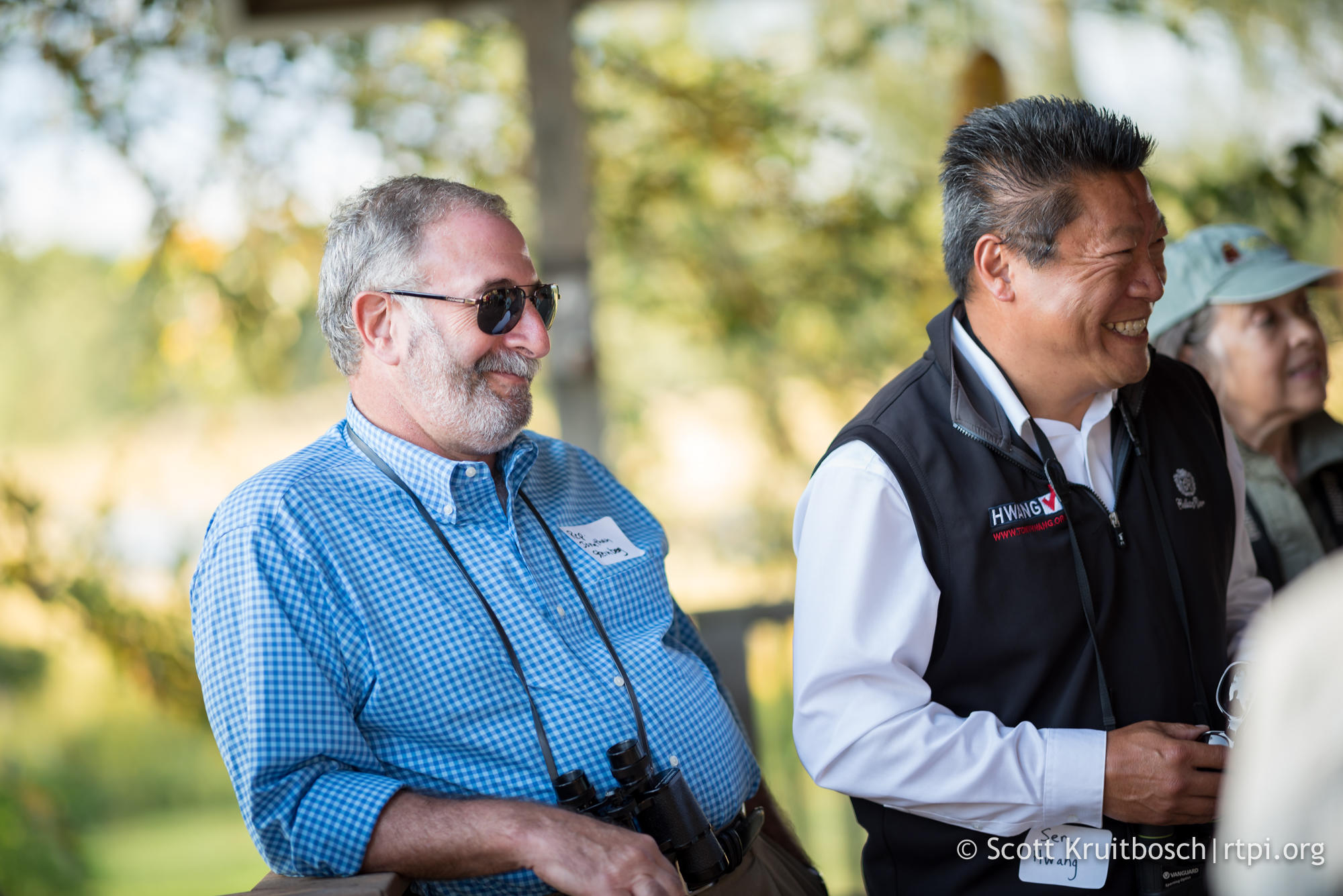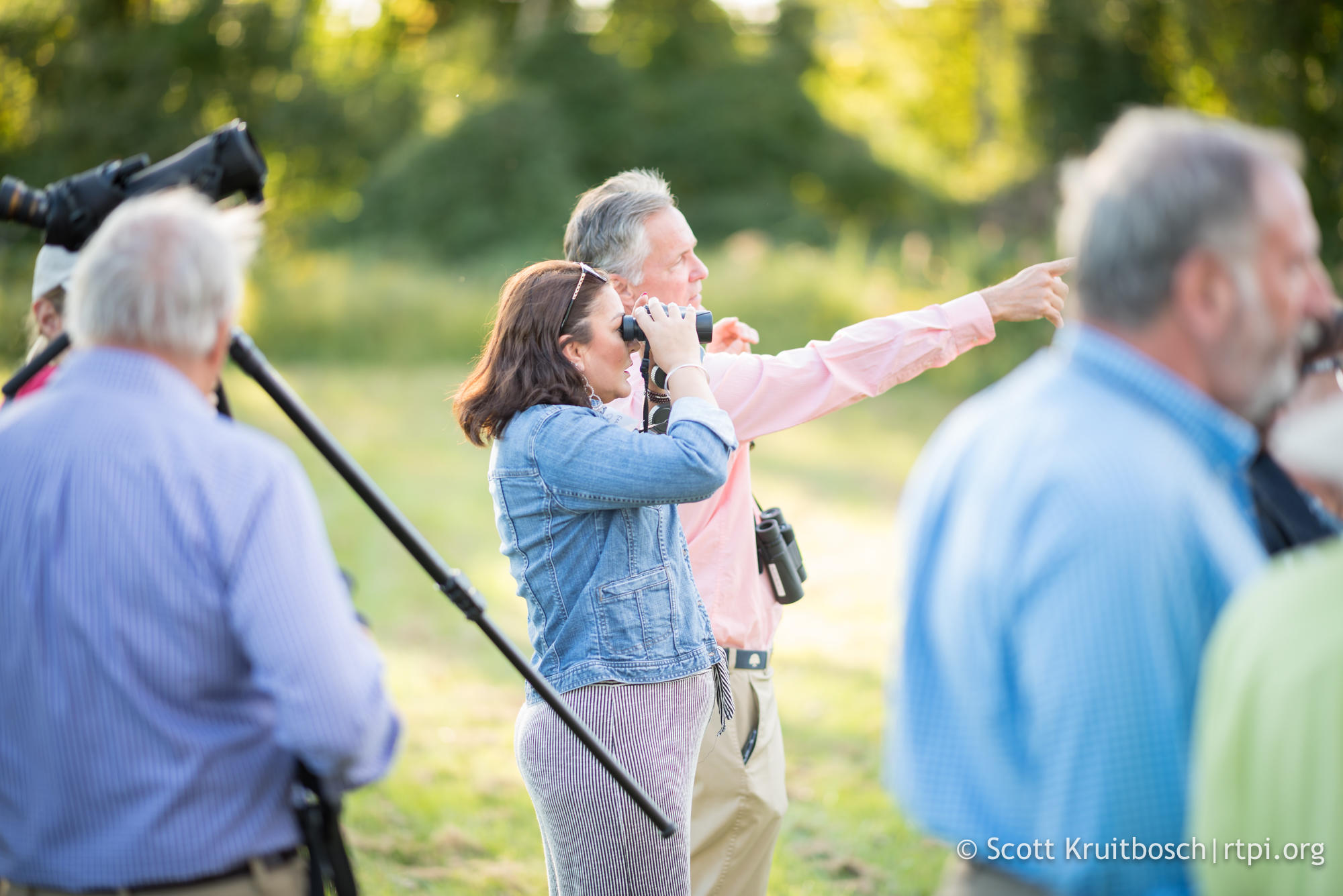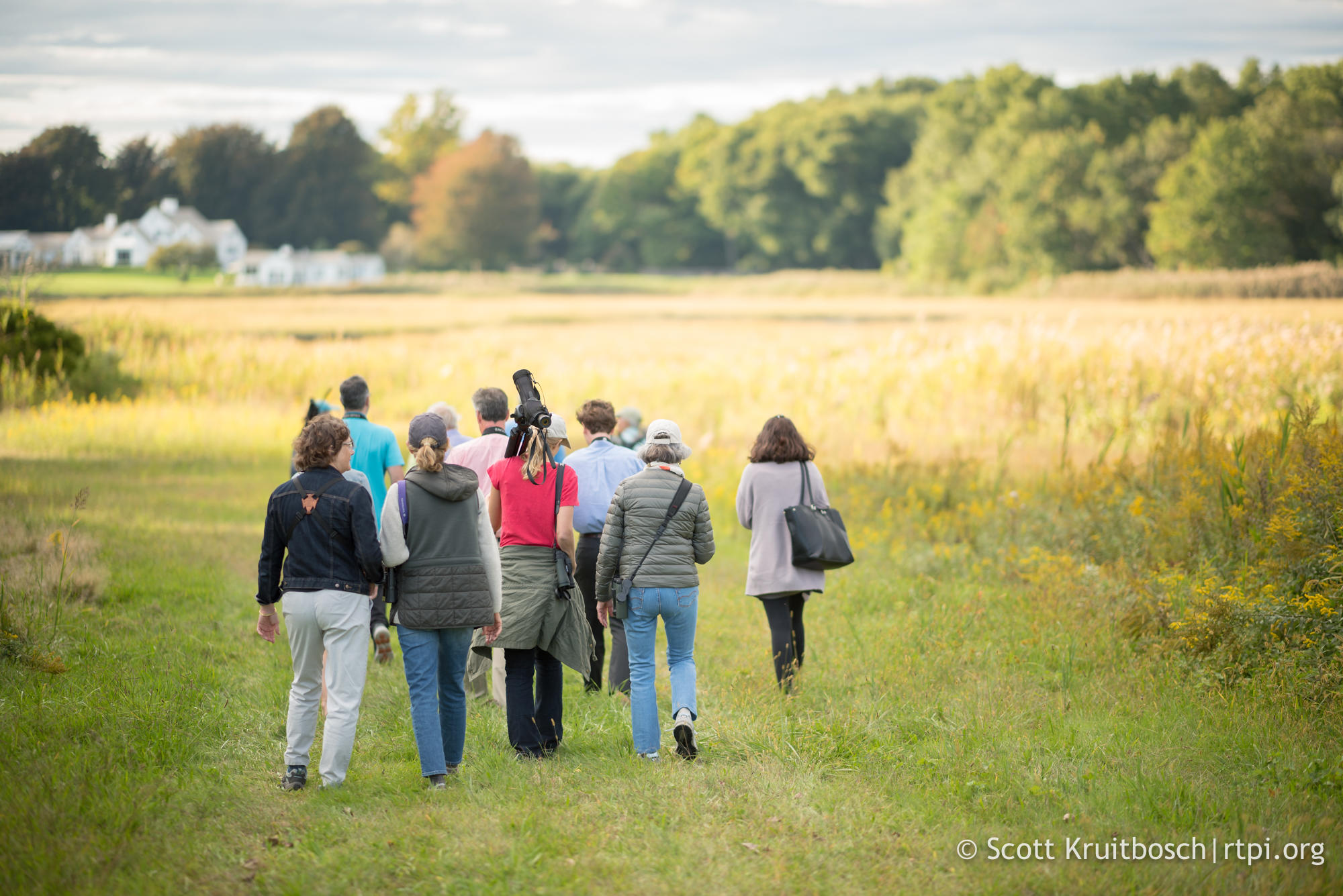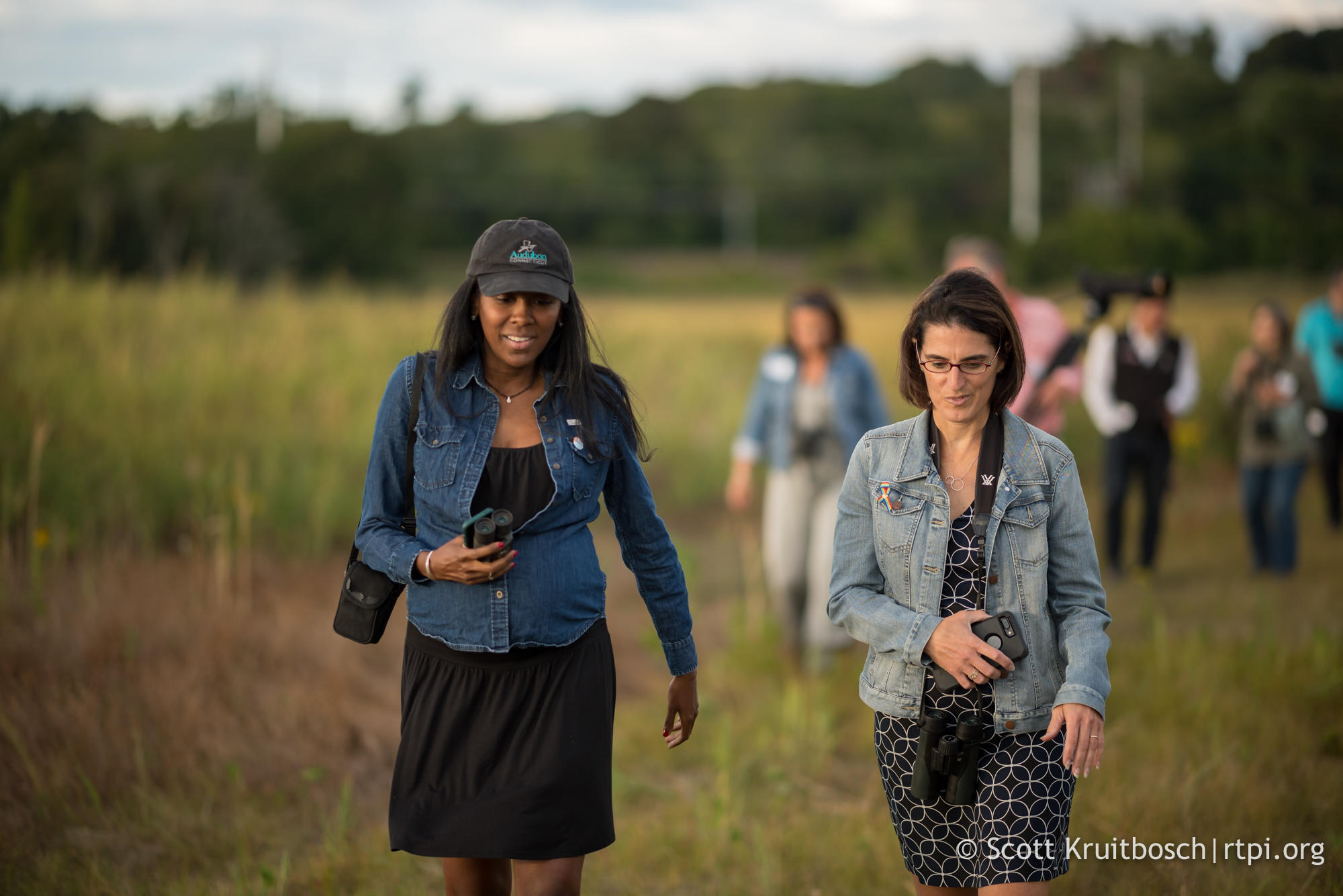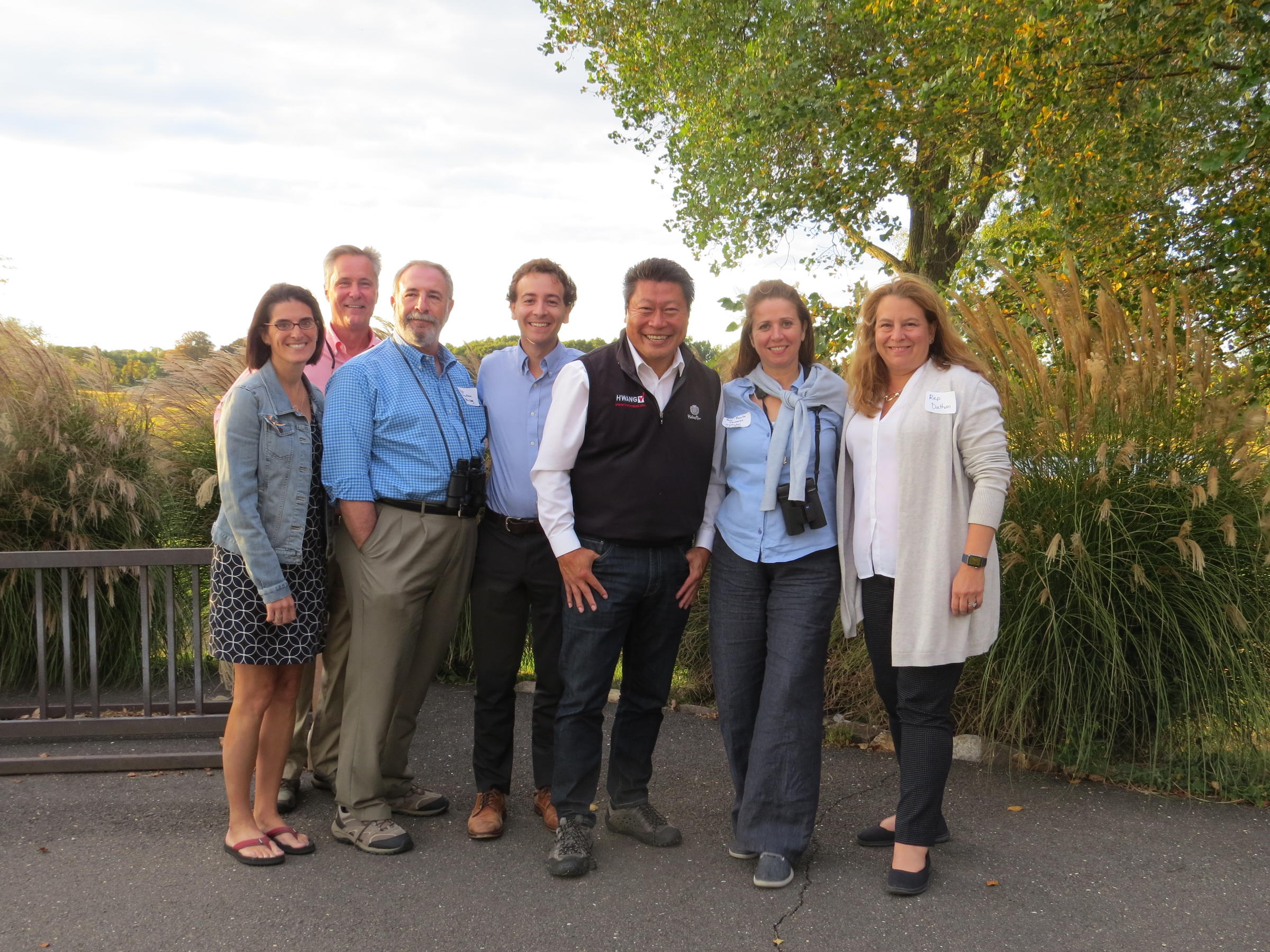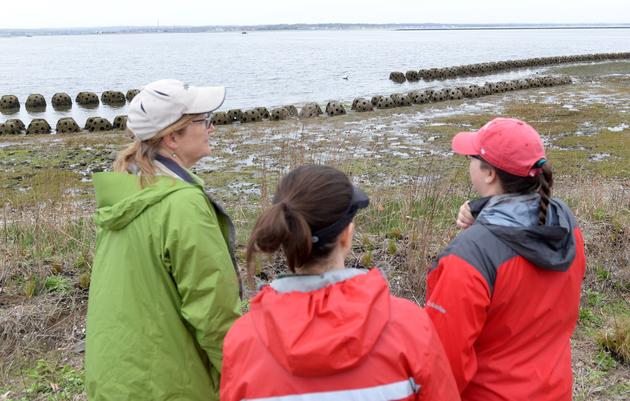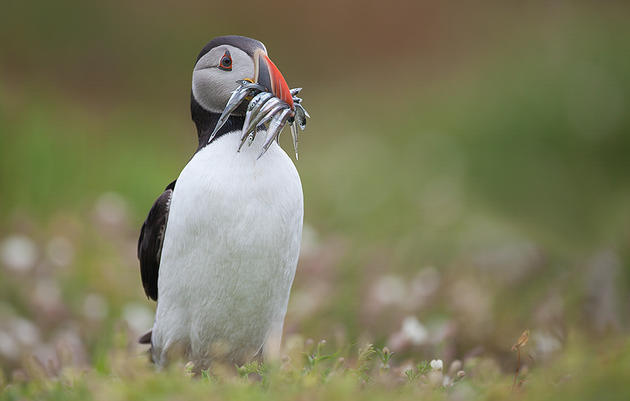Our coastlines don’t sit still, so neither can we.
September 25, 2019 - Audubon Connecticut and partners were joined Tuesday evening by Senator Will Haskell, Senator Tony Hwang, and Representatives Jonathan Steinberg, Lucy Dathan, and Cristin McCarthy-Vahey at a public forum to discuss the importance of salt marsh and wetland protection along with other strategies for building a resilient coast.
Birds like the Saltmarsh Sparrow depend on these salt marsh habitats and they are currently in a serious state of decline. To protect coastal habitat and reduce loss of life and property, action is needed on the federal, state and local level.
Ana Paula Tavares, Executive Director of Audubon Connecticut, began the evening by showing a video produced by Audubon and The Cornell Lab of Ornithology with funding provided by the Schumann Foundation (click here to view). Audubon Connecticut’s Director of Policy, Robert LaFrance, then gave a presentation and led a discussion about sea level rise.
In his presentation, Mr. LaFrance described the important work being done by members of the Menunkatuck Audubon Society, the Department of Energy and Environmental Protection, and the Connecticut Institute for Resilience and Climate Adaptation (CIRCA). The groups discussed the need to increase the resilience and sustainability of vulnerable communities along Connecticut’s coast as we face the growing impacts of climate change. It’s important to protect salt marsh and wetland habitat for wildlife as well as for coastal resilience.
Mr. LaFrance commented after the forum, “I am extremely grateful to the legislators who attended our forum for their thought-provoking questions. Adapting to a rising sea will require science-based planning and this bipartisan group got us all thinking about how we can best plan and then implement real world solutions.”


